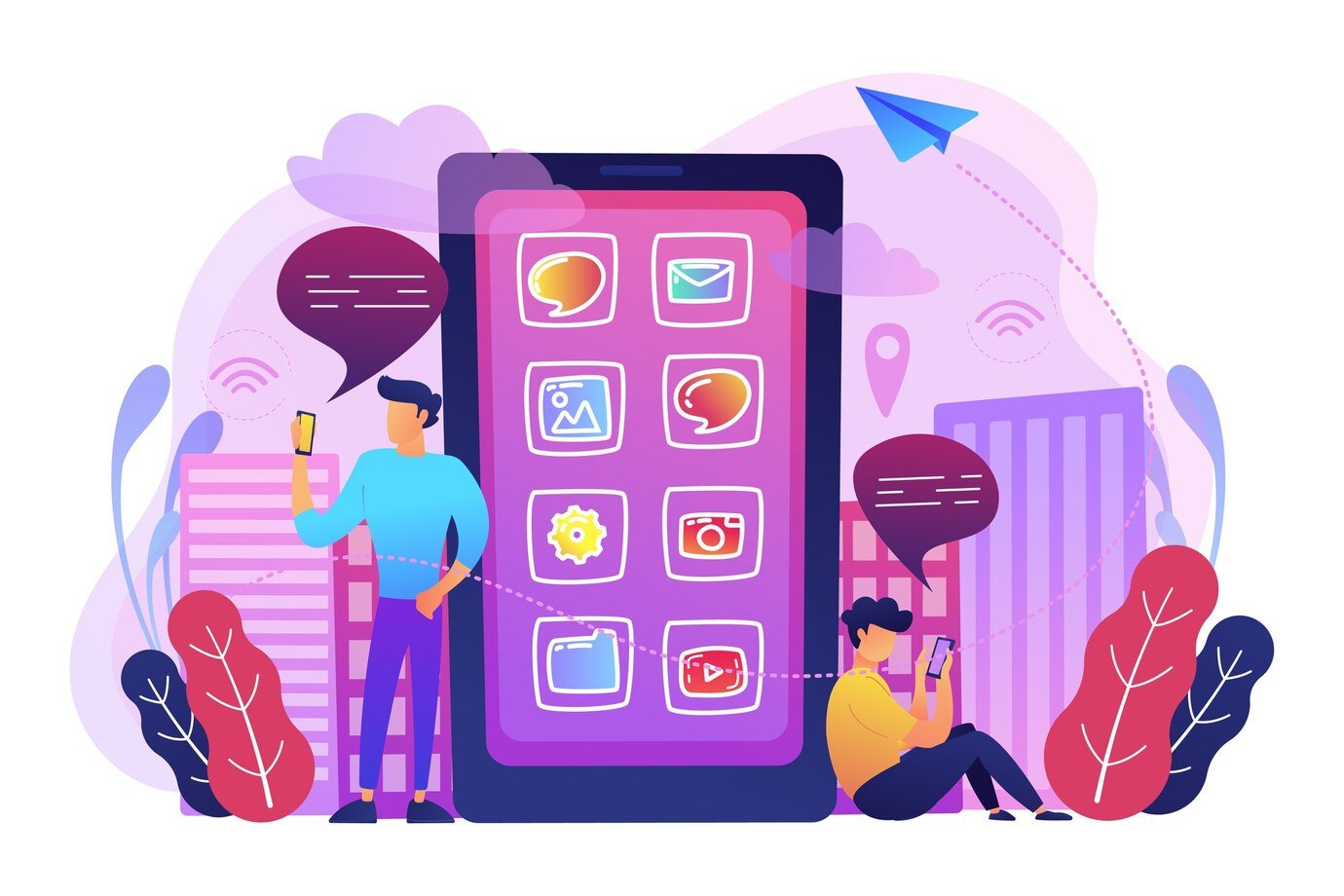Why Your Business Needs a Mobile App: Key Benefits and Trends
Today, mobile apps have become crucial to business growth. Whether you’re a startup or an established enterprise, having a mobile app can significantly boost your brand’s visibility, customer engagement, and revenue. With over 6 billion smartphone users worldwide, businesses that embrace mobile technology are staying ahead of the competition.
In this blog, we’ll explore why your business needs a mobile app, the key benefits, and the latest trends in mobile app development.
Key Benefits of a Mobile App for Your Business

1. Enhanced Customer Engagement
A mobile app provides a direct channel for businesses to interact with customers. Features like push notifications, in-app messaging, and chat support keep users engaged and informed about new offers, updates, and services.
2. Increased Brand Visibility and Recognition
Your brand stays in front of customers every time they unlock their phones. A well-designed app with a user-friendly experience reinforces your brand identity and builds trust among users.
3. Improved Customer Loyalty
Loyalty programs, personalized offers, and seamless customer support through an app can enhance customer retention. A mobile app allows businesses to offer exclusive deals, reward points, and discounts to frequent users.
4. Better Sales and Revenue Growth
Apps provide a convenient shopping experience, making it easier for customers to browse products, make purchases, and complete transactions. Studies show that mobile users tend to spend more time and money on apps compared to websites.
5. Competitive Advantage
Many businesses still rely on traditional websites or social media for customer engagement. Having a mobile app gives your business an edge by offering a more personalized and efficient experience.
Latest Trends in Mobile App Development

1. AI and Machine Learning Integration
Artificial intelligence is transforming mobile apps by enabling smart recommendations, chatbots, and automated customer service, making interactions more efficient and personalized.
2. 5G Technology for Faster Performance
With the rollout of 5G networks, mobile apps are becoming faster, offering smoother experiences with high-speed data transfers, better video streaming, and real-time communication.
3. Augmented Reality (AR) and Virtual Reality (VR)
AR and VR are revolutionizing industries like retail, real estate, and healthcare. Apps using AR allow customers to try products virtually before purchasing, enhancing their shopping experience.
4. Super Apps
Super apps combine multiple services into one, such as payments, e-commerce, messaging, and social networking. This trend is growing, particularly in Asia, with apps like WeChat and Paytm leading the way.
5. Cross-Platform Development
Businesses are now using frameworks like Flutter and React Native to develop apps that work seamlessly across both iOS and Android, reducing development time and costs.
How to Get Started with a Mobile App for Your Business
If you’re considering developing a mobile app, here are some essential steps:
- Define Your Goals – Identify what you want to achieve with the app, whether it’s increasing sales, improving customer service, or enhancing brand engagement.
- Research Your Audience – Understand your target customers, their preferences, and what features they expect in an app.
- Choose the Right Features – Incorporate essential features like push notifications, payment gateways, and user-friendly navigation.
- Decide Between Native or Hybrid Apps – Native apps offer better performance, while hybrid apps save development costs by working on multiple platforms.
- Partner with an Experienced App Developer – Work with a skilled development team to build a high-quality, secure, and scalable app.
- Test and Optimize – Before launching, thoroughly test the app for performance, security, and user experience.
- Launch and Promote – Once the app is live, promote it through social media, email marketing, and paid ads to reach your target audience.
If you plan to develop a mobile app for your business, Contact Us
Conclusion
A mobile app is no longer a luxury but a necessity for businesses looking to expand their digital presence. From boosting customer engagement to increasing sales, the benefits are endless. With the latest trends shaping the future of mobile apps, now is the perfect time to invest in a well-designed, feature-rich app for your business.
